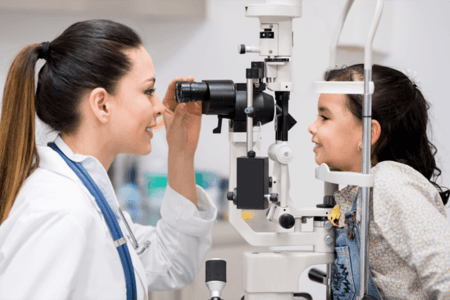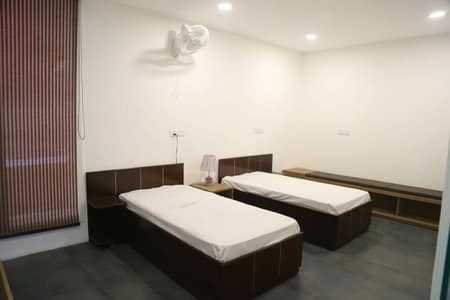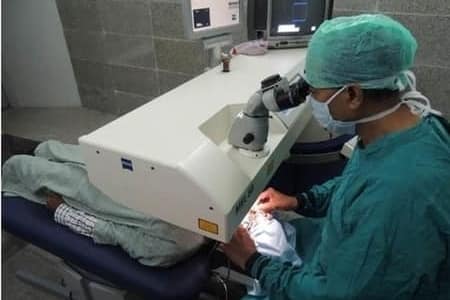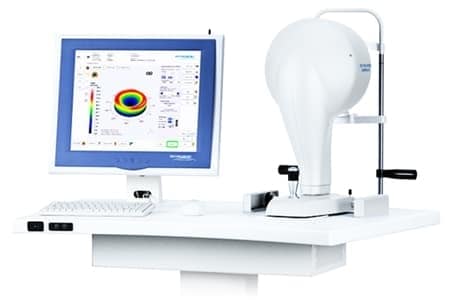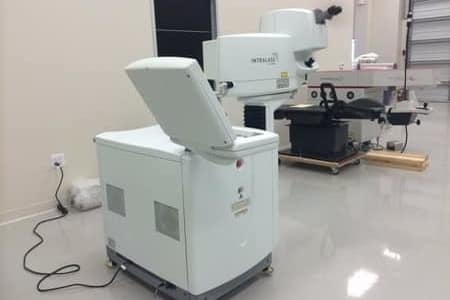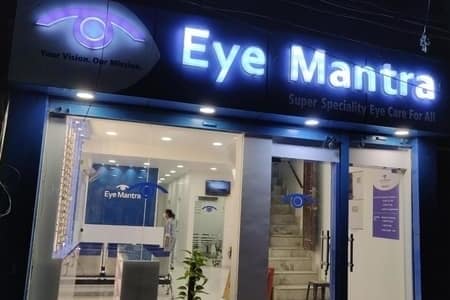Standard LASIK
We believe that everyone has the right to see things clearly. That is why we have chosen to devote our life to offering people with the finest eye doctors available.
Overview Standard LASIK
The Food and Drug Administration in the United States (FDA) approved LASIK (laser assisted in-situ keratomileusis) in 1999. It is a laser vision correction treatment that can help most patients abandon glasses and contact lenses entirely. The cornea is reshaped by LASIK to treat nearsightedness (myopia), farsightedness (hyperopia), and astigmatism. Newer technologies have given way to bladeless LASIK and custom LASIK, but traditional LASIK remains common because it is safe and effective. Traditional LASIK is the best option for some patients.
LASIK is a complex medical procedure that requires the skill of an experienced surgeon. The FDA has a list of things you should consider before undergoing LASIK surgery. Make sure to consult with your doctor to see if LASIK is right for you.
Book Free Consultation
Book Appointment or Video Consultation online with top eye doctors
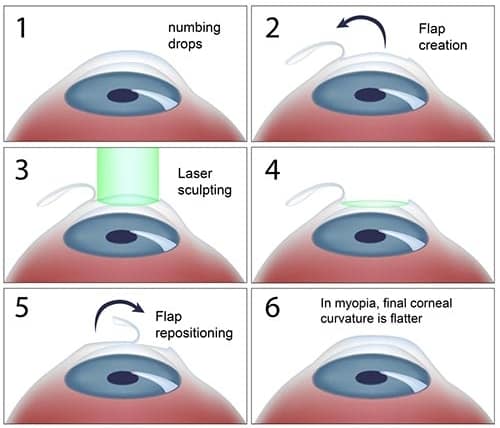
Standard LASIK Procedure
In LASIK, an oscillating blade called a microkeratome is utilized to cut a little flap in the corneal surface. To raise the flap, a tiny quantity of suction is applied, allowing the excimer laser to make small refinements to the cornea.
The flap is then closed, and will heal on its own. There are no stitches or sutures involved..
You are conscious throughout the procedure. General anesthesia is not required. To keep you comfortable, eye drops to numbness are utilized. The entire surgery takes between five and fifteen minutes for each eye.
Benefits of Standard LASIK
LASIK is a relatively safe surgical procedure with few adverse effects and little pain afterward. Our laser specs removals have helped people abandon their glasses for good.
Some of the advantages of Standard Lasik eye surgery surgery are:
- The flap is formed in approximately thirty seconds.
- The patient will not be shifted from one room to the next during the surgery, as the entire procedure may be done in a single location with this technique.
- There are no worries about having difficulties or needing to re-calibrate since microkeratome instruments may cut through any discrepancy in color or opacity.
- Other systems, such as the elimination of the epithelial flaps, may be added to the microkeratome for producing epithelial flap reconstructions.
- inflammation is less frequent in the traditional LASIK procedure.
- Microkeratome surgeries cost less than traditional surgeries!
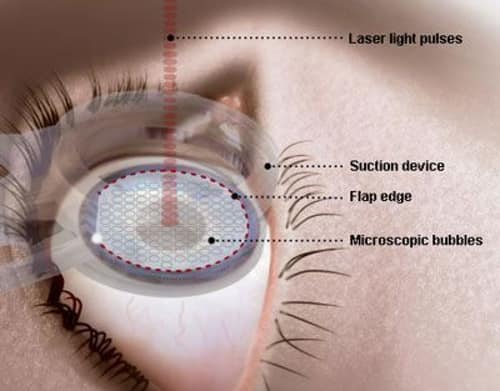
Blade Vs Bladeless LASIK
Please keep in mind that one approach isn’t superior than the other. To determine which treatment is ideal for a patient, an ophthalmologist must examine him or her.
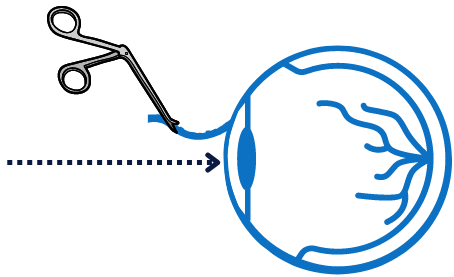
Blade LASIK
- Preferred technique for correcting previous LASIK procedures
- It’s possible that you’ll feel more at ease.
- Suction is less required.
- Preferred treatment for those who have glaucoma
- Reduced possibility of complications
- Compared to bladeless, it’s a quicker procedure.
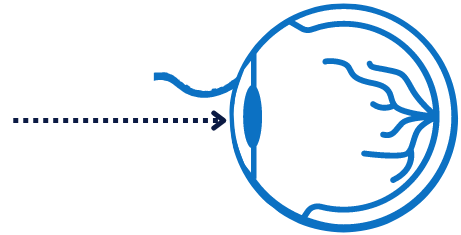
Bladeless LASIK
- Flap thickness variation risk is notably lower.
- When compared to blade, post-surgical vision is better.
- Touch-up surgery is not usually needed.
- Effective and Safe for people with thin corneas or significant refractive errors
- Fewer postoperative problems are experienced.
- To the human cornea, it’s extremely delicate.
Standard LASIK Risks
There are certain side effects that people may experience after LASIK surgery. These are usually temporary. They include:
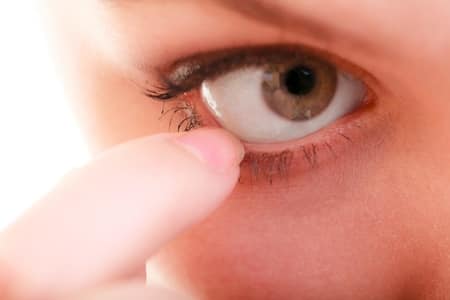







LASIK Surgery Aftercare
Most patients see without glasses following a Lasik procedure. However, because corneal stabilization and healing might take as long as 6 months, it is recommended that you wait this long before applying for vision correction. Corneal stability is necessary before repeating operations on the eye.

Some of the aftercare tips for Standard Lasik eye surgery are:
- Expected to see blurred and have some watering on the day of treatment, as well as discomfort.
- The next day, your vision should be clearer and more comfortable.
- When administering drops, be careful not to disturb the flap.
- For seven to eight days, no water in the eyes or head bath
- For the next two weeks, I’ll be using them outside.
- Light sensitivity, glare, dryness, and blurred night vision are all typical side effects. These are typical and gradually improve with time.
Standard LASIK Cost
LASIK is a highly common operation in India, with over 1 lakh individuals having had laser eye surgery. It also aids people who wish to eliminate their glasses or contact lenses permanently. In certain situations, however, the surgical procedure may be costly.
The Eye Mantra hospital is one of the most respected eye hospitals in India and offers LASIK eye surgery at a reasonable price. The cost of Standard Blade LASIK ranges from $15,000 to $25,000. The expense, however, is determined by the technique used as well as the severity of each situation.
| Procedure | Recovery Time | Risks (Dislocation / flap tearing) | Suitability (High power / thin cornea) | Key Benefit | Price/Eye (₹) |
|---|---|---|---|---|---|
| Standard LASIK In Delhi | 30 days | High | Basic standard surgery for specs removal | 12,000 | |
| C LASIK In Delhi | 15 days | High | Customized to cornea | 16,000 | |
| Contoura In Delhi | 3 days | Low | Corneal polishing and aberration removal for super vision. | 25,000 | |
| TransPRK In Delhi | 3 days | Low | One step procedure: Bladeless, Flapless, Touchless, and Safest | 32,000 | |
| Femto LASIK In Delhi | 3 days | High | Laser used to create flap | 40,000 | |
| ICL Surgery In Delhi | 3 days | Medium | Eye lens replaced with a new lens | 40,000 | |
| Smart Surf LASIK In Delhi | 3 days | Lowest | 5D Eye tracking with aberration removal | Max tissue saving | 45,000 | |
| SMILE In Delhi | 7 days | Low | Laser used to extract eye tissue for vision correction | 80,000 |
Best Eye Hospital.
There are several fine eye hospitals all around the world that offer LASIK Laser eye surgery, such as L.V. Prasad Eye Institute in Hyderabad and Sankara Nethralaya in Chennai, as well as AIIMS and Eye Mantra in India. In terms of LASIK Laser treatment in Delhi and the NCR region, Eye Mantra is undoubtedly the best place to go.
Our board-certified ophthalmologists employ the most up-to-date technologies and equipment to provide comprehensive eye care for our LASIK, SMILE, Contura, and ICL patients. We are dedicated to providing low-cost, high-quality eye surgery services that assist our patients in achieving better eyesight and a better quality of life.
If you are thinking about getting LASIK eye surgery, we recommend that you schedule an appointment with us so that we can evaluate your individual needs and suggest the best treatment option for you. We’re excited to assist you in seeing better!
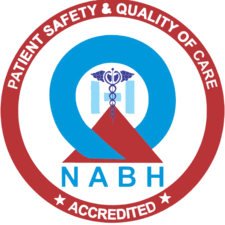

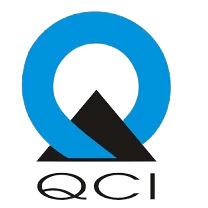


Top LASIK Surgeons in Delhi
Eye Mantra provides the greatest ophthalmologists and cutting-edge equipment for your LASIK surgery.
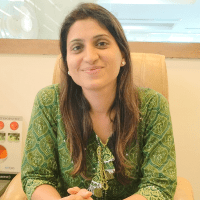
Cataract, Retina, Glaucoma, LASIK

Retina Specialist
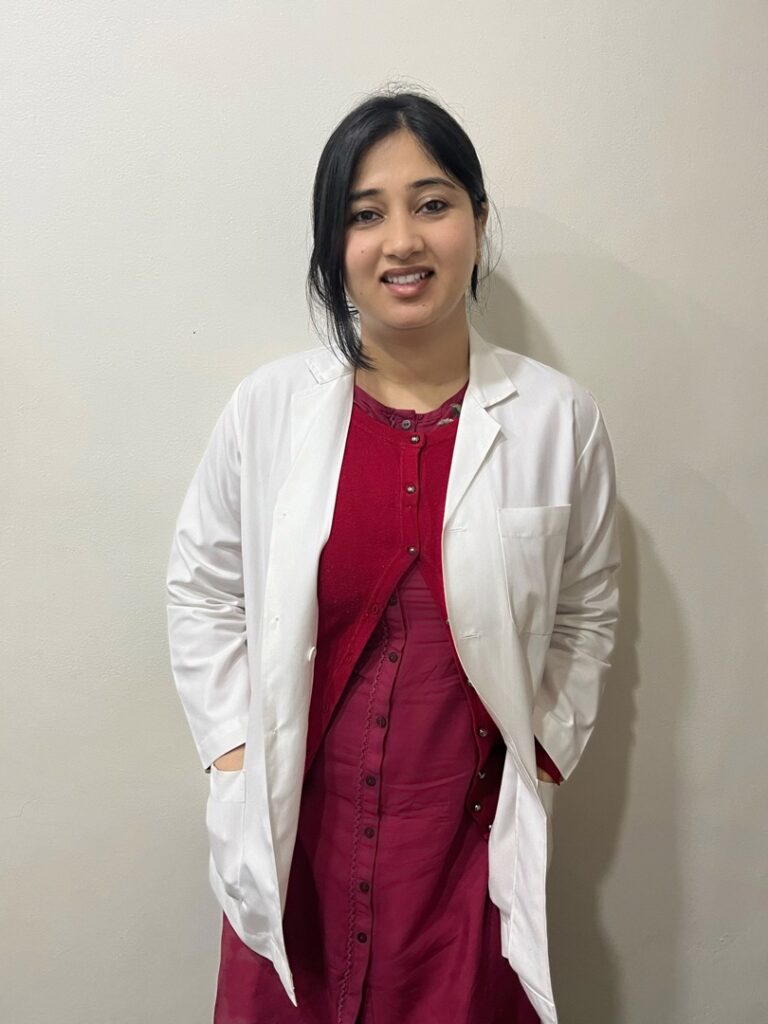
Cataract, Retina, Glaucoma, LASIK
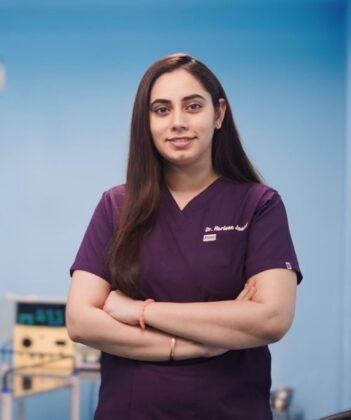
Cataract, Retina, Glaucoma, LASIK
Our Facilities
